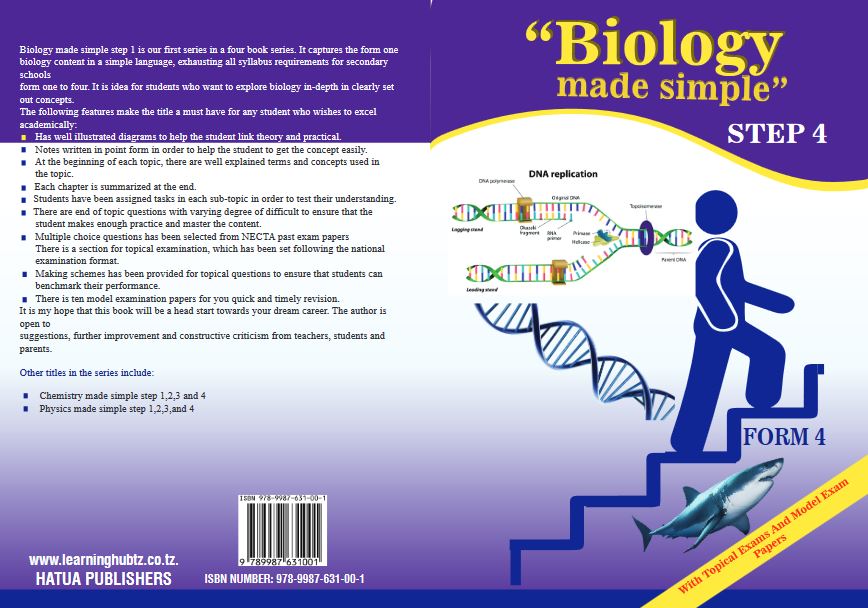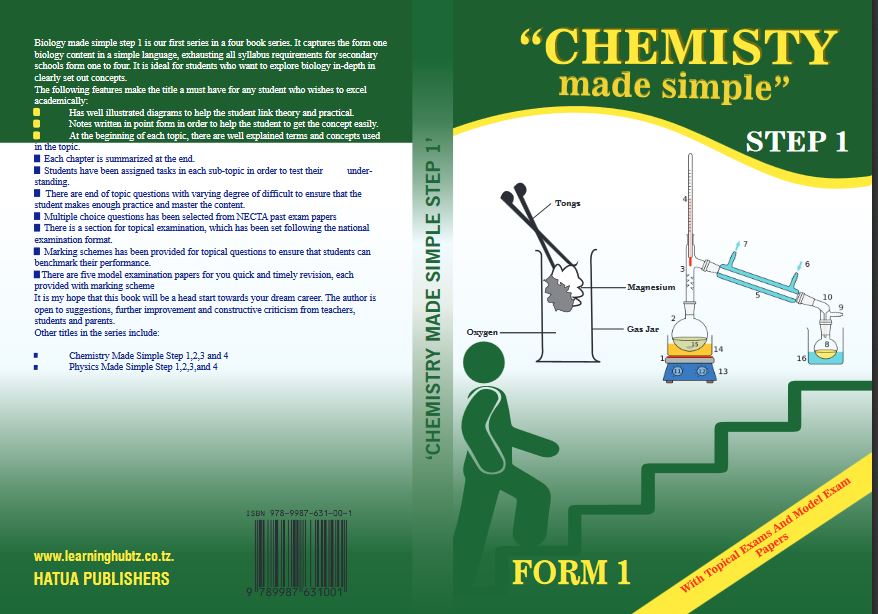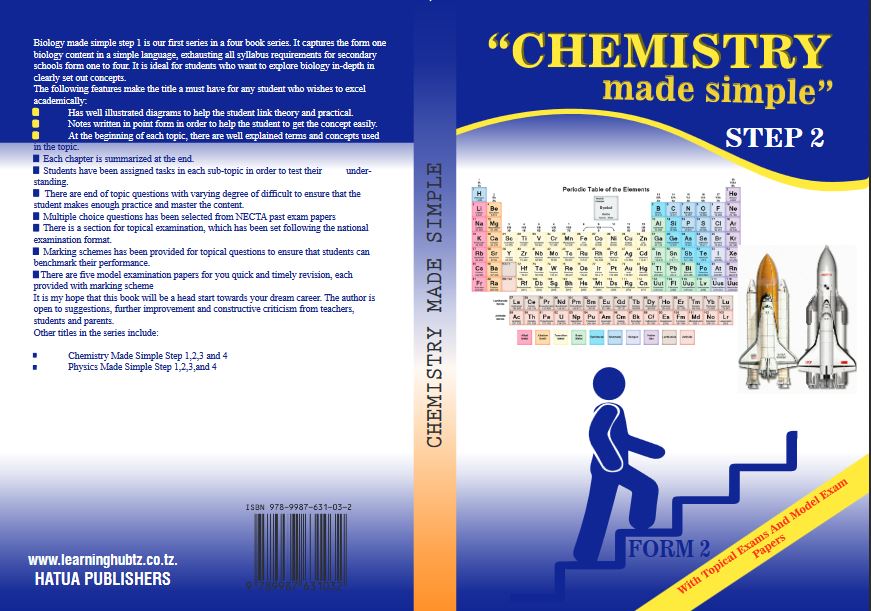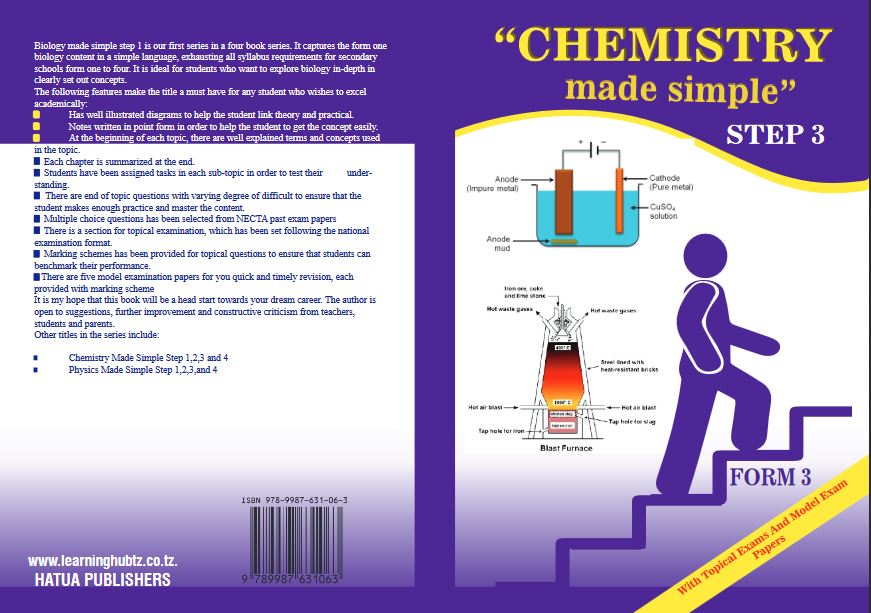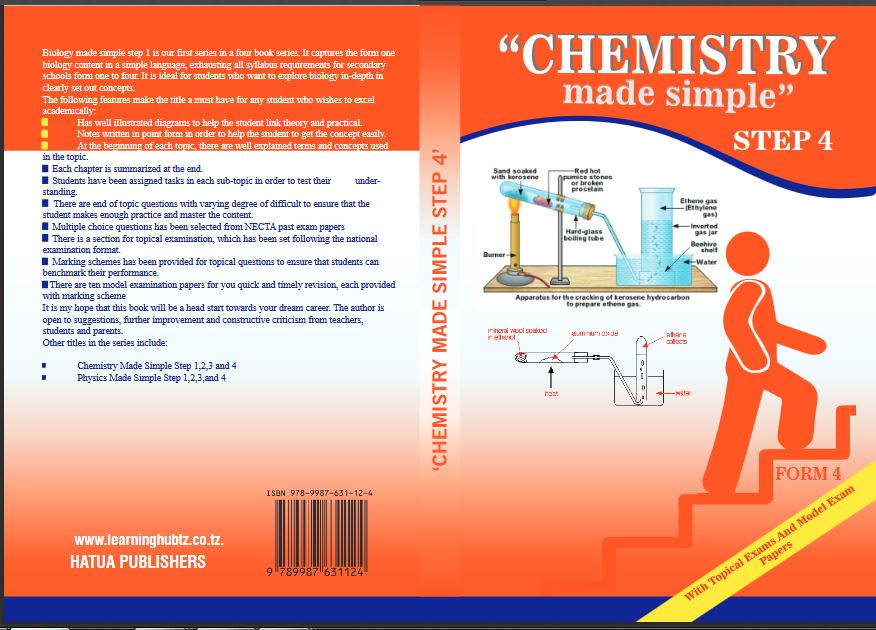THE UNITED REPUBLIC OF TANZANIA NATIONAL EXAMINATIONS COUNCIL OF TANZANIA CERTIFICATE OF SECONDARY EDUCATION EXAMINATION
ENGLISH
(For Both School and Private Candidates)
Time: 3 Hours Year: 2009
SECTION A
COMPREHENSION
1. Read the passage below carefully and answer the questions that follow.
To achieve the objective of a development plan, the whole nation must work as a team. We must marshal all the help we can get for the struggle. And in working for the future, we must guard all that is valuable in our inheritance.
We in this country have great natural resources. First, we have the people who are enthusiastic, friendly and law-abiding. This is our great asset in development. But we have also good land and minerals. And we have wildlife such as those found in a few other parts of the world. These things we must preserve, and put at our service. Perhaps, the most important of all, we must retain the values of our brotherliness, or family-hood, which our fathers had. Our task is to widen those values not to eradicate them. This is in fact, the purpose of all our work and all our plans; the creation, through African socialism, of our country in which we can all live proudly as brothers.
The tasksbefore us are immense surveying them. We might be inclined to ask like the baby centipede; 'How do we start? Which leg do I move first?' And the answer is the same as he was given: 'Move child, move!' No one of us can solve all the problems in front of our nation, but as each of us does his own task, so progress will be made.
QUESTIONS
(i) In paragraph 2, the writer suggests that the part of our inheritance which we must guard most carefully is:
- the enthusiasm of friendly people
- the unusual wildlife
- the good land and minerals
- the feeling of brotherhood
- the good land, people and minerals
(ii) The writer declares that:
- if all the people in the nation work freely and democratically the plan must succeed.
- the success of the plan depends on the house.
- if all the people work together we will succeed.
- the success of the plans depend on the worst poverty our country now experiences.
- if all the people in the nation work harder the plan must succeed.
(iii)The point of the story about the centipede is that:
- people should work faster.
- it is difficult to know which part of the task to attempt first.
- children must be told to move first.
- the tasks are so many and so great that progress will be difficult.
- it is easy to plan on which step to start with as long as we have set our goals.
(iv) The writer's intention in the last two sentences is to:
- show that the whole ability of the nation must be used in a disciplined effort.
- praise the quality of our weapons and ammunition.
- show clearly the objective of the plan.
- call the people to meet the challenge and achieve Uhuru.
- show that if people use the weapons available, they can be successful.
(b) Complete the following sentences by filling in the blank spaces with appropriate information from the passage.
(i)The word development means . . . . . . . . . .
(ii)The objective of development plan is . . . . . . . . . .
(iii)The phrase: Our weapons are our hands and our determination means . . . . . .
View Ans2. Summarize the following passage in five (5) sentences.
Climate is the most important factor in soil formation. It has two components - temperature and rainfall. Vegetation, micro-organisms and animals including man, greatly influence the formation of soil. Vegetation exerts its main influence on soil formation through the amount and nature of the organic matter that it adds to the soil. Relief influences soil formation primarily as a factor affecting erosion and as a modifier of climate and water-air relationships.
Parent material is the initial state of the soil system as it represents the weathered rock materials from which the soil develops. The kind of soil that develops depends in part upon the kind of parent rocks and parent materials which influence the physical and chemical properties of the resulting soil. The maturity of a soil is determined by the time factor. The length of time required for a soil to develop horizons depends upon many inter-related factors such as climate, nature of the parent material, organisms and relief.
View AnsSECTION B
PATTERNS AND VOCABULARY
3. Complete the following sentences with the suitable word among the words given below. Write the correct word against the item number. More; much; lot; enough; many; little; any; not.
In the evening, there were (i) . . . . . . . . people at the bus stand. These would have given me a (ii) . . . . . . of money if I carried them. But there wasn't (iii) . . . . . . . . diesel in the tank. The (iv) . . . . . . . diesel I had was just enough to drive back home. Oh! How I wished I had more.
View Ans4. In each of these sentences one word is wrong. Correct them by writing the correct word.
(i) I'm very happy today. I've got a letter from my deer friend.
(ii) The milkman put five litres of milk in his new pale
(iii) I saw a flock of cattle when I was crossing river Honia.
(iv) Mr. Mzilikazi is our new principle.
View Ans5.Study the following diagram, read the passage that follows it and answer the questions.
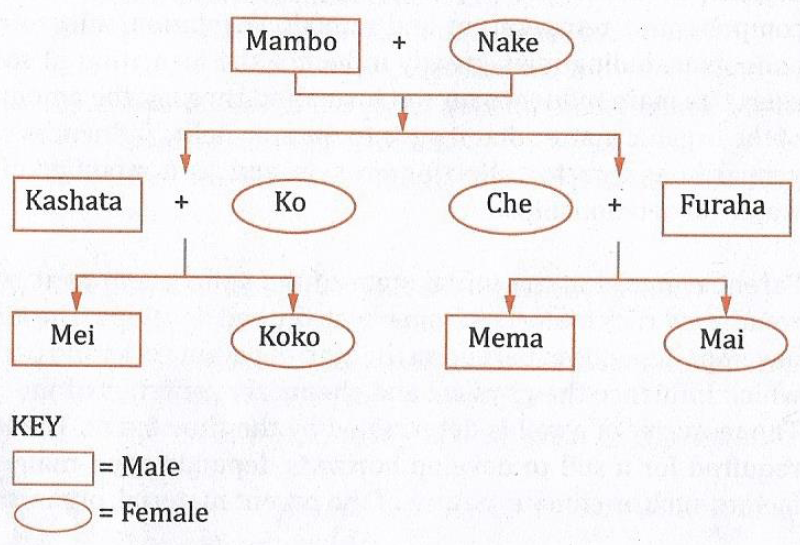
This diagram represents Mambo's and Nake's family. They have only two children who are Kashata and Che. Kashata got married to Ko. They have two children who are Mei and Koko. Che got married to Furaha and have got two children, Mema and Mai.
QUESTIONS
(a)What does Mambo call Mai?
(b)What does Furaha call Mambo and Nake?
(c)What does Koko call Mema?
(d) What does Mei call Che?
View Ans6. Rewrite the following sentences according to the instructions given after each.
(a) He did not only wash his face but also combed his hair.
(Begin: Not only . . . . . . . .)
(b) "I have been studying English Language for four years," he said.
(Use indirect speech)
(c) He studied hard everyday as a result he got better results. (Begin: The harder . . . . . . . .)
(d) Whose pen is this? (Begin: To whom . . . . . .)
View Ans7.
Construct the sentences using the information provided on Boko's life history.
| 1984 - 1987 | At Kimashuku Secondary School. |
| 1985 | Bought a bicycle. |
| 1988 - 1991: | At Changarawe college |
| 1992 - 1994: | Teach English at Maneromango Secondary School |
| 1995: | Buy a new saloon car |
| 1996 - 1998: | Teach English at Mgambo Secondary School |
For example:
In 1986 Boko was going to school at Kimashuku Secondary School.
In 1985 Boko bought a bicycle.
(a) In 1989, . . . . . . . . . . . . . . . . . . . . . . . . . .
(b) In 1993, . . . . . . . . . . . . . . . . . . . . . . . . . .
(c) In 1995, . . . . . . . . . . . . . . . . . . . . . . . . . .
(d) In 1997, . . . . . . . . . . . . . . . . . . . . . . . . . .
View Ans8.Arrange the following sentences in chronological order to make a meaningful paragraph by writing the right letter against each item. For example (i) - E
A.Organisms that spread disease without being affected by the diseases themselves are called vectors.
B.Animals and insects spread diseases.
C. For example, a fly walking over faeces or a decaying carcass will get bacteria on its feet and body.
D.Some vectors collect and deliver pathogens by accident.
E.If it then makes contact with your skin or your plate, the bacteria will be passed on and those bacterial cells could travel into your body.
View Ans9.Match the items in list A with responses in list B to make meaningful sentences by writing the letter of the correct response beside the item number.
| List A | List B |
| (i)The policemen were guarding the bank ......... (ii)Although I am tired ......... (iii)All the citizens have to work hard, ......... (iv)Tanzanians speak English . . . . . (v)She has to wake up early in the morning ......... |
|
10. A. In not less than 250 words, write a story ending "Thanks God! I had a mobile phone".
View AnsB. You have been appointed to be a principal speaker of the motion: "Prostitution must be discouraged in our country." Argue for the motion in 250 words.
View AnsC. In not more than 250 words, write a composition on: "Motor Accidents in Tanzania roads, their causes and suggest ways on how this problem could be controlled."
View AnsD. Write a letter to the Manager, Mtwara Cooperative Union, Makonde Street, P. O. Box 345 Mtwara. Apply for the post of Accounts Clerk as it was advertised in the Daily News of Thursday June 15th, 2009. Sign your name as Doto Majaliwa Kazimoto.
View AnsSECTION D
RESPONSE TO READING
Answer two (2) questions from this Section. One question should be selected from poetry and the other from novels and short stories or plays.
LIST OF READINGS
NOVELS AND SHORT STORIES
- A Wreath for Father Mayer of Masasi - S. N. Ndunguru (1977), Mkuki na Nyota
- Unanswered Cries - Osman Conteh, Macmillan
- Passed Like a Shadow — B. M. Mapalala (2006), DUP
- Spared - S. N. Ndunguru (2004), Mkuki na Nyota
- Weep Not Child — Ngugi wa Thiong'o (1987); Heinemann The Interview - P. Ngugi (2002), Macmillan
PLAYS
- Three Suitors: One Husband - O. Mbia (1994), Eyre Methuen
- The Lion and the Jewel — W. Soyinka (1963), OUP
- This Time Tomorrow - Ngugi wa Thiong'o (1972), Heinemann
- The Black Hermit — Ngugi wa Thiong'o (1968), Heinemann
POETRY
- song of and ocol - O. P' Bitek (1979) - EAPH
- Growing up with Poetry — D. Rubadiri (ed) (1989) - Heinemann
- Summons - R. Mabala (1960) - TPH
11. With reference to the poem below, highlight the central theme and relate it to what is currently happening in our society.
Death, be not proud - by John Donne (England)
Death, be not proud, though some have called thee
Might and dreadful, for thou art not so;
For those whom you think'st though dost overthrow Die not, poor Death, not yet canst though kill me.
From rest and sleep, which but thy pictures be,
Much pleasure — then from thee much more must flow; And soonest our best men with thee do go, Rest of their bones and souls's delivery.
Though art slave to fate, chance, kings and desperate men,
And dost with poison, war and sickness dwell;
And poppy or charms can make us sleep as well,
And better than thy stroke. Why swell'st thou then?
One short sleep past, we wake eternally,
And death shall be no more. Death, thou shalt die.
View Ans12.When trying to follow foreign culture, the African finds himself or herself divorced from both his culture and the foreign one. Using four (4) poems show how this is true.
View Ans13.With reference to two (2) novels or short stories, analyse the sources of conflicts the writers present.
View Ans14.Different groups of people and individuals have different goals and interests which are sources of conflict in the society. Justify this statement by referring to two (2) plays you have read under this section.
View AnsANSWER

Hub App
 For Call,Sms&WhatsApp: 255769929722 / 255754805256
For Call,Sms&WhatsApp: 255769929722 / 255754805256
 For Call,Sms&WhatsApp: 255769929722 / 255754805256
For Call,Sms&WhatsApp: 255769929722 / 255754805256
WHATSAPP US NOW FOR ANY QUERY
App Ya Learning Hub Tanzania

